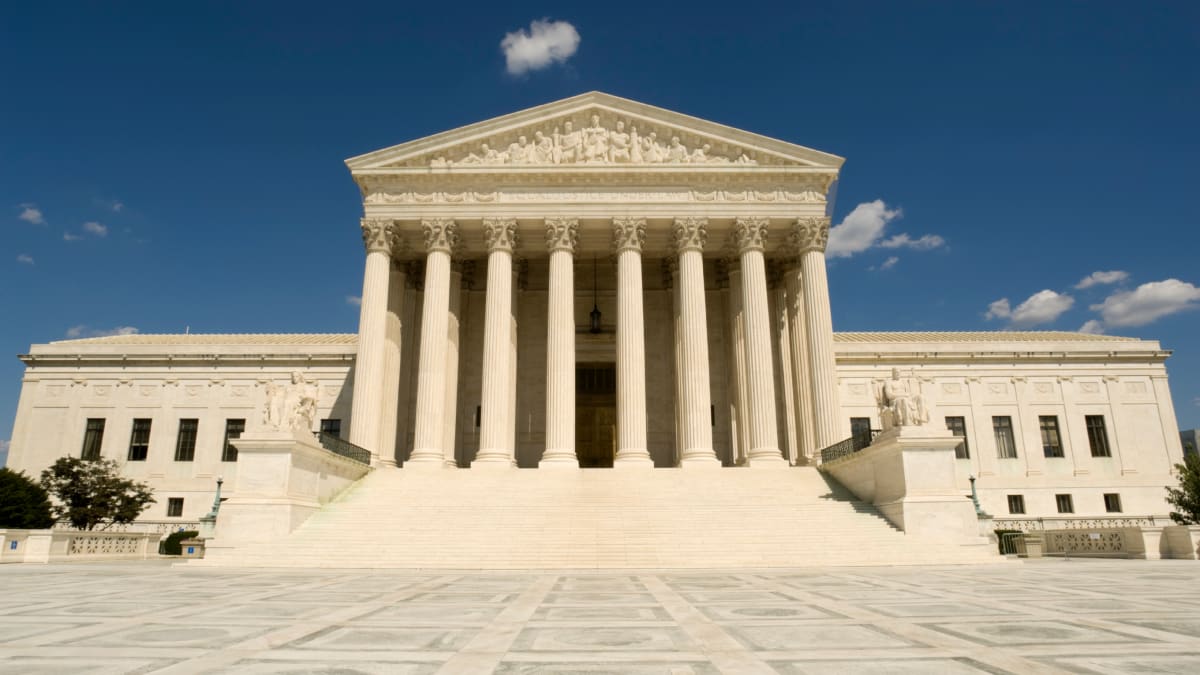Blog
What’s at Stake When SCOTUS Rules on the CFPB This Fall

This fall, the Supreme Court could make a decision that would result in one of the most devastating rollbacks of consumer protections in history.
A lawsuit brought by the predatory payday loan industry is coming before the court’s conservative supermajority next term, seeking to gut the popular Consumer Financial Protection Bureau (CFPB) by striking down its funding structure as unconstitutional.
In reality, the case has little to do with constitutionality, and everything to do with a longstanding plot by predatory lenders, greedy big banks, and Wall Street special interests to impair the CFPB.
They’re not shy about it either. A who’s who of right-wing figures, industry allies, and Wall Street politicians have come out of the woodwork to file amicus briefs in favor of the payday loan industry’s lawsuit. Their goal: bring an end to the agency and leave millions of consumers vulnerable to the financial industry’s predatory behavior.
Those who wish to abuse consumers have been right to fear the CFPB. The Bureau has recouped $16 billion in relief for over 190 million consumers in spite of ongoing industry efforts to defund, defang and do away with their agency.
Here are just a few examples of the aid and advocacy at stake if the Supreme Court rules against the CFPB:
Saving consumers billions in junk fees
In January 2022, the CFPB announced an initiative to save consumers billions of dollars by cracking down on “exploitative junk fees” – including overdraft and non-sufficient funds (NSF) fees, ATM and service fees, and other fees consumers face in the banking ecosystem.
Big banks designed these fees to disproportionately target low-income consumers for a reason. An analysis found that the ten largest retail banking institutions raked in a staggering $20.5 billion in revenue from “junk fees” in 2022 alone.
How does the agency plan to curb these fees? Their latest initiative to cap credit card late fees at $8 could save American families $9 billion every year – after already helping consumers save a staggering $4.25 billion.
Investigating predatory services and industries
When an industry’s abusive schemes take advantage of American consumers, you can bet the CFPB will be there to hold them responsible.
In July 2023, the Bureau joined the Department of Health and Human Services and the Department of Treasury to launch an investigation into high-cost specialty financial products that exploit patients, such as medical credit cards and installment loans.
“Financial firms are partnering with health care players to push products that can drive patients deep into debt,” said CFPB Director Rohit Chopra. “We are opening a public inquiry to better understand how these practices are affecting patients in our country.”
Protecting student borrowers
During the pause on student loan repayments, predatory debt relief services – including GST Factoring, Inc. and Champion Marketing Solutions, LLC – targeted struggling borrowers. As a result, their customers lost a grand total of $11.8 million.
The CFPB didn’t let the services’ abuse go unchecked. By leading a lawsuit against the companies, they secured redress for harmed consumers and permanently banned the lenders from targeting borrowers again.
Defending the financial security of service members
The CFPB is the only federal financial regulator with an office devoted to addressing the specific threats servicemembers face from the financial industry.
Military consumers reported nearly 50,000 cases of identity theft in 2021 alone; and in 2022, credit or consumer reporting issues made up 54% of all service member complaints to the CFPB.
Since its founding, the CFPB has analyzed hundreds of thousands of complaints from servicemembers, veterans, and military family members. Additionally, the Bureau has helped servicemembers get their lives back by ensuring that financial institutions take action when military families report identity theft.
Holding Big Banks accountable
The CFPB won’t let Big Banks get away with picking on American consumers for profit.
That includes Bank of America – which harmed hundreds of thousands of consumers by “double-dipping” on their overdraft fees and withholding reward bonuses.
In July 2023, the CFPB ordered Bank of America to pay more than $100 million back to their customers impacted by their schemes, in addition to $150 million in penalties to the CFPB and the Office of the Comptroller of the Currency (OCC).
But this isn’t the first time the CFPB has held the bank accountable. Just last year, the CFPB and OCC ordered Bank of America to pay hundreds of millions of dollars in redress to consumers for botching disbursement of state unemployment benefits during the COVID-19 pandemic. Additionally, in 2014, Bank of America was forced to pay $727 million in redress to victims of their illegal credit card practices.
Follow us on Twitter and Threads for more on the CFPB’s advocacy on behalf of American consumers and Wall Street special interests plotting to take the agency down.
